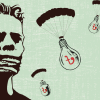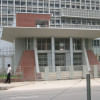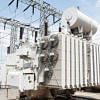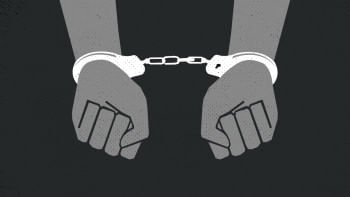Power price hiked by 5pc

The government yesterday raised the electricity price for consumers, on average, by 5 percent, skirting around procedures of Bangladesh Energy Regulatory Commission (BERC).
On January 8, a BERC committee had recommended a 15 percent hike.
For now, this may appear the government has struck a middle ground, there are, however, indications that more hikes are on the cards.
The new rate will be applicable from this month, said a notification from the power, energy and mineral resources ministry.
The weighted average tariff charged by power distribution companies per kilowatt-hour will now be Tk 7.49, up from Tk 7.13.
So, a person who has been paying Tk 1,000 for power will have to pay Tk 1,050 in February.
The move to hike the retail price comes after the bulk price was hiked by 19.92 percent in November last year by BERC, a quasi-judicial organisation that regulates the prices for gas, power, and petroleum products.
While announcing the bulk price hike, Nasrul Hamid, the state minister for power, energy and mineral resources, and BERC Chairman Abdul Jalil had said the electricity price at the retail level would not rise.
However, the same week, six power distributors had submitted proposals to increase the electricity price at retail level by an equal percentage.
"It seems the government has hiked the power tariff slightly, which may appear to be a good decision, but bypassing BERC is actually giving it a death blow."
BERC on January 8 held a public hearing on those proposals, and there its technical evaluation committee recommended a 15 percent hike at the consumers' end.
The five-member BERC was supposed to sit after January 15 and decide on any price hike by 60 working days from last Sunday.
Yesterday's power price hike announcement was unusual in that it came from the ministry, not BERC.
"From now on, there won't be any hike at one go," Nasrul said yesterday, adding that the electricity price would be adjusted at regular intervals like the LPG price.
The move to increase the prices by the ministry itself did not sit well with experts.
"It seems the government has hiked the power tariff slightly, which may appear to be a good decision, but bypassing BERC is actually giving it a death blow," said Khandaker Golam Moazzem, research director at the Centre for Policy Dialogue.
The price hike might lessen the government's subsidy burden as prescribed by the International Monetary Fund, he said, adding that the prices might be raised further in the days to come.
M Shamsul Alam, dean of Daffodil University's faculty of engineering, said, "We are going backwards with such decisions -- BERC is an exemplary organisation.
"The government's decision is dangerous and reckless … they destroyed the BERC brutally … ."
BERC was supposed to announce its decision on the electricity price hike over the next two months, but the ministry went around BERC procedures and came up with the announcement, leveraging a recent amendment to the law.
President Abdul Hamid last month issued an ordinance amending the BERC Act 2003 to include a provision that would allow the government to adjust the prices of gas, electricity, and fuel bypassing BERC.
The government had assured that the provision, which is yet to be approved by parliament, will only be used in the case of emergency.
Asked if any emergency prompted this decision to hike prices, Nasrul Hamid said electricity generation cost has increased 20 times; the price adjustment was necessary considering the global and domestic situation.
The power price hike would have an impact on inflation, which crores of consumers are enduring. Inflation averaged 8.76 percent in the first six months of the fiscal year.

 For all latest news, follow The Daily Star's Google News channel.
For all latest news, follow The Daily Star's Google News channel. 








Comments